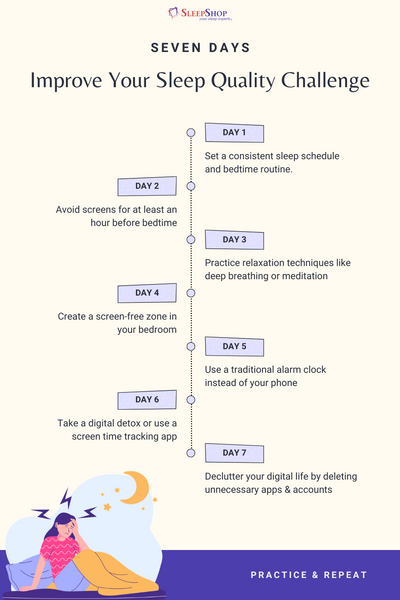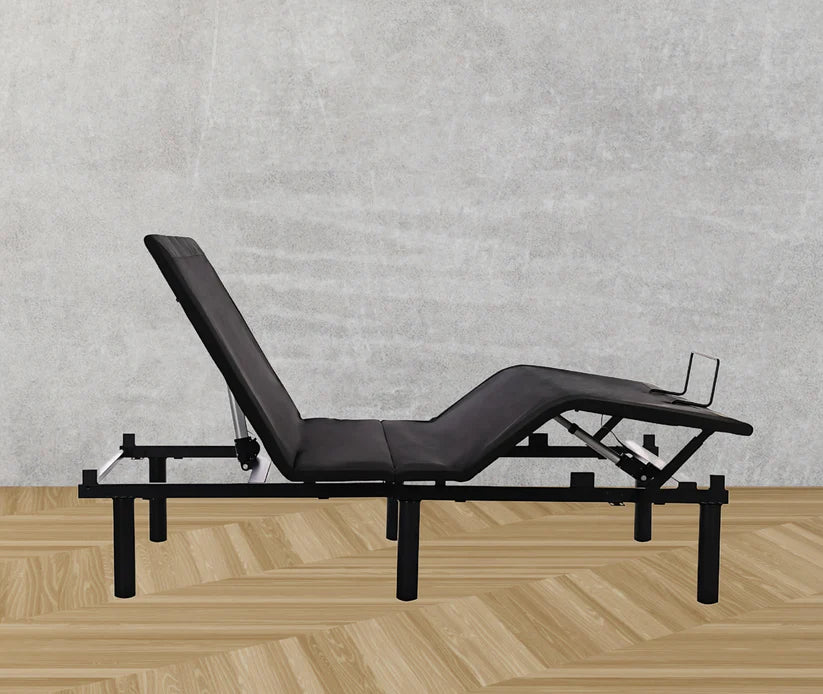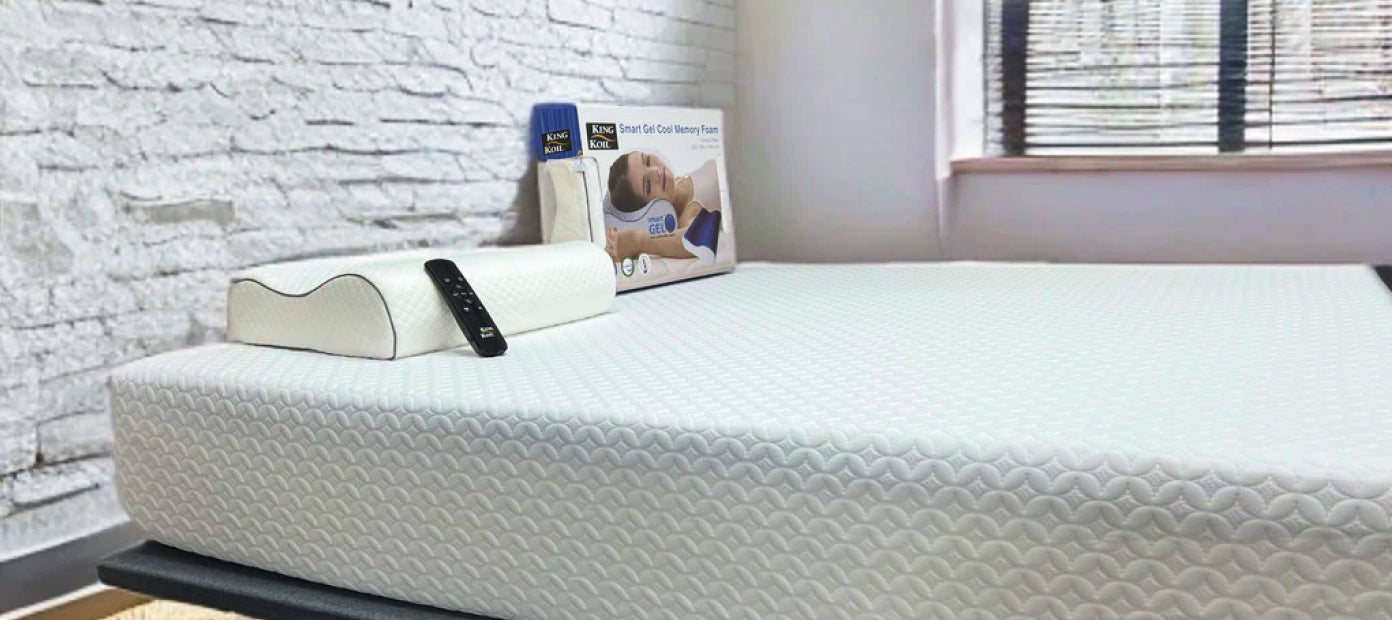The Impact of Social Media on Sleep: How to Break the Cycle
According to Statistics Canada study examines the negative effects of social media use on individuals aged 15 to 64 in Canada. It finds that around one-fifth of social media users reported experiencing negative outcomes such as lost sleep, trouble concentrating, and less physical activity due to their social media use.
As we spend more time scrolling through our social media feeds, it's easy to forget the impact it can have on our sleep.
But the truth is, social media can have a significant impact on our sleep quality. In this blog, we'll explore the effects of social media on sleep and provide tips on how to reduce screen time before bedtime.
The Effects of Social Media on Sleep
Social media can have a significant impact on our sleep quality in several ways:
1. Blue Light Exposure: The screens of our devices emit blue light, which can suppress the production of melatonin, the hormone that regulates our sleep-wake cycles. This can make it difficult to fall asleep and reduce the quality of our sleep.
2. Stress and Anxiety: Social media can be a source of stress and anxiety, especially if we're comparing our lives to others or feeling pressure to present a perfect online persona. This can make it difficult to relax and fall asleep.
3. Sleep Inertia: Waking up to check our phones can disrupt our sleep patterns and make it difficult to fall back asleep.
The Impact of Social Media on Sleep Quality
Studies have shown that social media use before bedtime can lead to:
1. Reduced sleep quality
2. Increased sleep latency (time it takes to fall asleep)
3. Reduced sleep duration
4. Increased risk of sleep disorders
The Sleep Cycle: How Social Media Disrupts Your Sleep
Did you know that social media use can disrupt your sleep cycle? Here's how:
1. N1 (Light Sleep): This is the first stage of sleep, where you start to relax and drift off. Social media can disrupt this stage by keeping your brain alert and engaged, making it harder to fall asleep.
2. N2 (Intermediate Sleep): This is the stage where your body temperature drops, heart rate slows down, and you become less aware of your surroundings. Social media can disrupt this stage by causing stress and anxiety, making it harder to reach deeper stages of sleep.
3. N3 (Deep Sleep): This is the stage where your body repairs and regenerates tissues, builds bone and muscle, and strengthens the immune system. Social media can disrupt this stage by causing interruptions and disturbances, reducing the amount of deep sleep you get.
4. REM (Rapid Eye Movement): This is the stage where you dream and your brain consolidates memories. Social media can disrupt this stage by causing you to wake up and check your phone, interrupting the REM cycle and making it harder to get back to sleep.

How to Break the Cycle
So, what can we do to reduce the impact of social media on our sleep? Here are 9 tips to help you break the cycle:
1. App-ly Yourself
💡 Tip: Use apps like Freedom, SelfControl, or Moment to block social media access during certain hours of the day or night.
2. Screen-Free Zone
💡 Tip: Make your bedroom a screen-free zone by removing all screens from the room. This will help you avoid the temptation to check your phone before bed and reduce the blue light exposure that can interfere with your sleep.
3. Blue Light Blocking
💡 Tip: Use blue light blocking glasses, apps, or software to reduce the impact of screens on your sleep.
4. Relaxation Techniques
💡 Tip: Relaxation techniques can help reduce stress and anxiety, which are common causes of insomnia. Deep breathing, progressive muscle relaxation, and guided imagery are all effective techniques that can help you relax and reduce your stress levels.
5. Bedtime Routine
💡 Tip: A consistent bedtime routine can help signal to your body that it's time to sleep. Avoid screens for at least an hour before bedtime and instead engage in a relaxing activity like reading a book or taking a warm bath.
6. Alarm Clock
💡 Tip: Use a traditional alarm clock instead of your phone to avoid the temptation to check your phone first thing in the morning.
7. Digital Detox
💡 Tip: Take a digital detox for a few hours or a whole day to reduce your exposure to screens and social media.
8. Screen Time Tracking
💡 Tip: Use a screen time tracking app to monitor your screen time and set goals for reduction.
9. Digital Decluttering
💡 Tip: Declutter your digital life by deleting unnecessary apps, emails, and social media accounts. Simplify your digital life and reduce your stress levels.
Additional 💡 Tips:
In addition to the tips above, here are some additional tips to help you reduce the impact of social media on your sleep:
- Avoid screens for at least an hour before bedtime
- Use a sleep tracker or app to monitor your sleep quality and identify patterns
- Try to avoid stimulating activities before bedtime, such as exercise or watching TV
- Consider using a white noise machine or earplugs to block out distracting sounds
- Try to establish a consistent sleep schedule and bedtime routine
Social media can have a significant impact on our sleep quality, but by making a few simple changes to our habits, we can reduce the impact and improve the quality of our sleep.
By setting a screen-free zone, using blue light blocking glasses, practicing relaxation techniques, setting a bedtime routine, using an alarm clock, limiting social media use, and using technology to our advantage, we can break the cycle of social media's impact on our sleep.

![The Impact of Social Media on Sleep [9 tips to avoid it]](http://sleepshop.ca/cdn/shop/articles/The_Impact_of_Social_Media_on_Sleep_9_tips_to_avoid_it_1.png?v=1714611227)




Leave a Comment
Your email address will not be published. Required fields are marked * Comments must be approved before they are published.